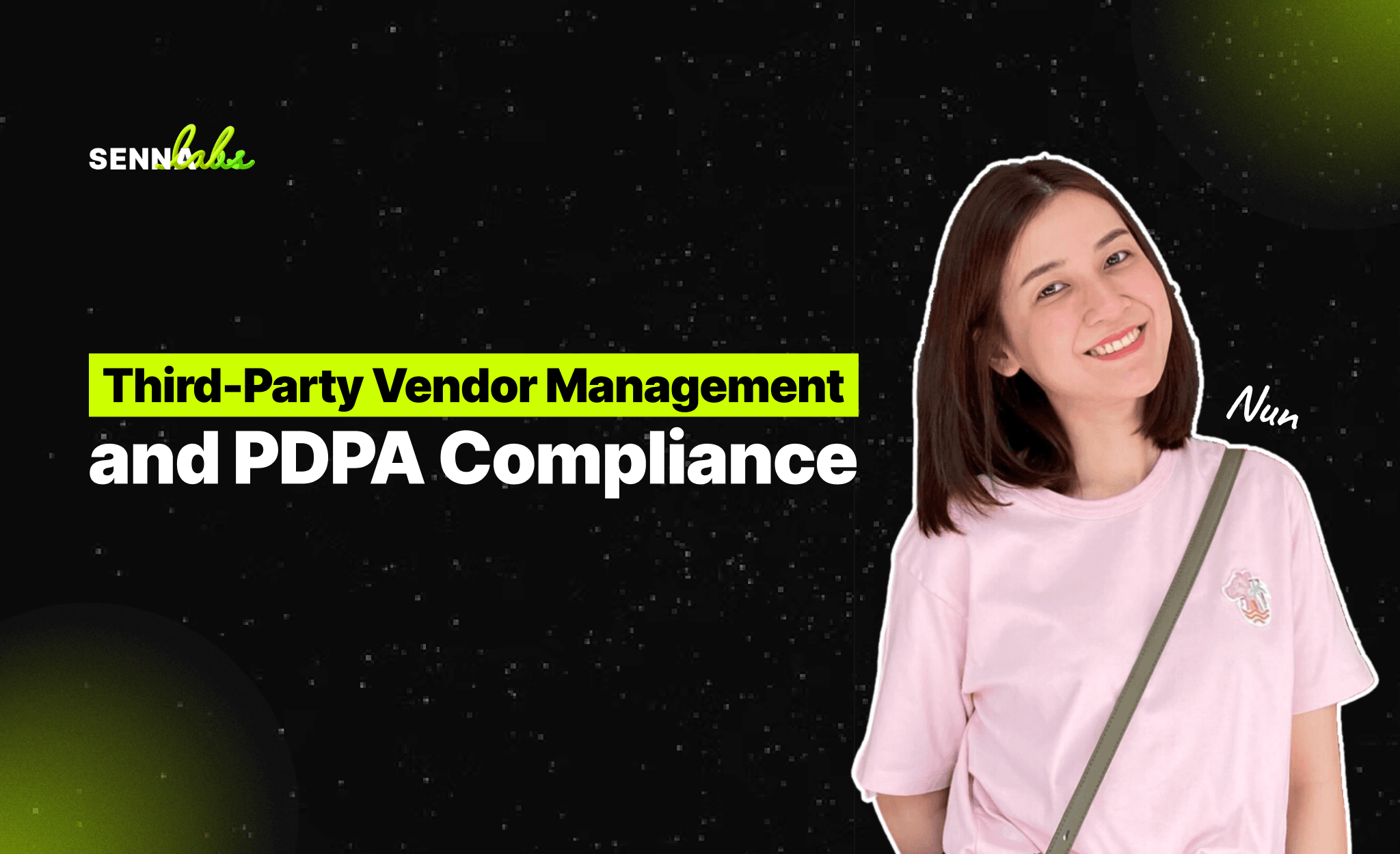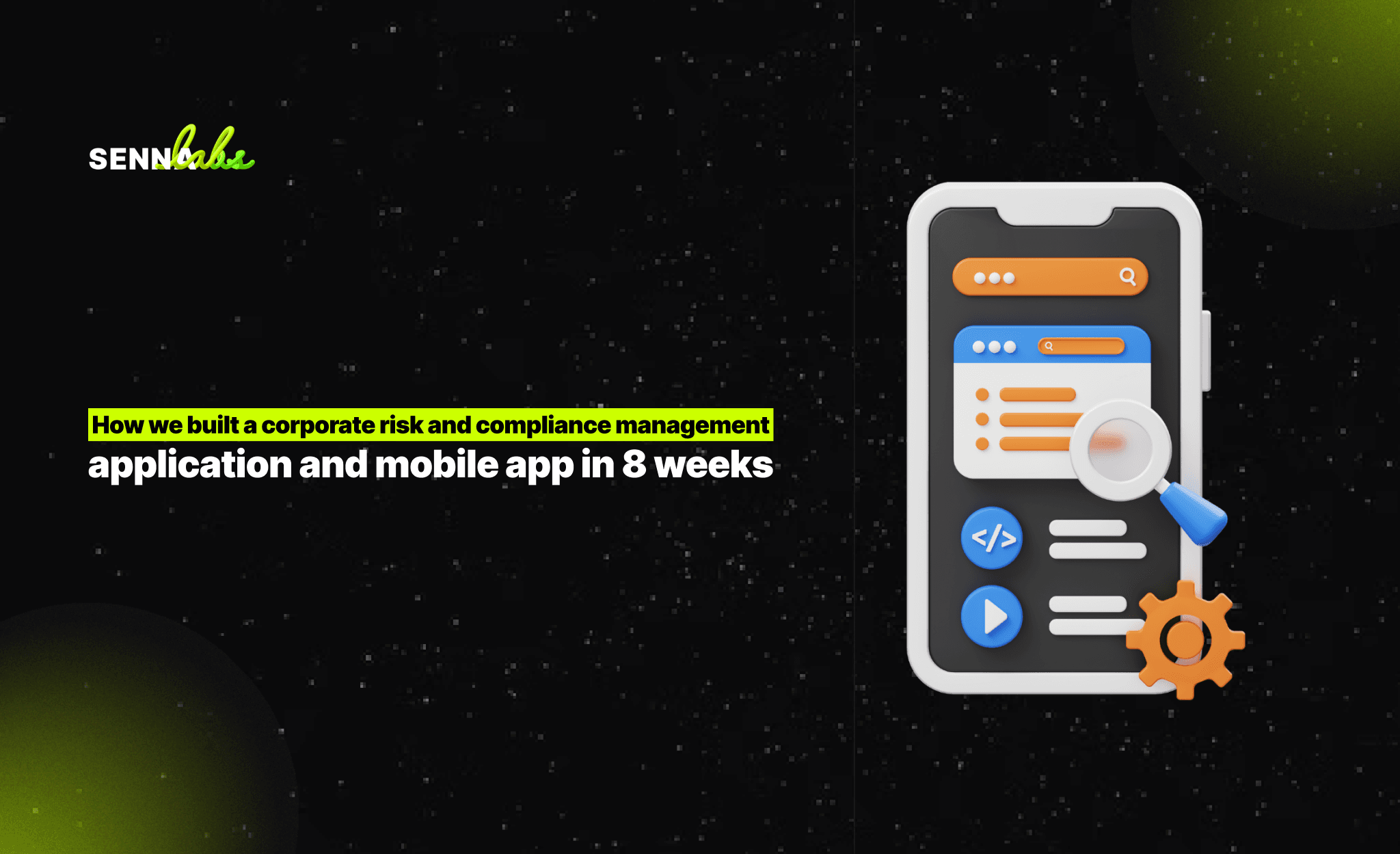Third-Party Vendor Management and PDPA Compliance
Share

In today’s interconnected business environment, organizations frequently rely on third-party vendors to handle various operational tasks, from IT services to marketing, customer support, and beyond. While these partnerships are essential for improving efficiency and expanding capabilities, they also present significant challenges when it comes to data security and regulatory compliance. Under the Personal Data Protection Act (PDPA), businesses must not only protect the personal data they handle internally but also ensure that their third-party vendors adhere to the same data protection standards.
When it comes to third-party vendor management, maintaining PDPA compliance is critical. A data breach originating from a vendor can lead to severe financial and reputational damage for the hiring company. This article will explore how businesses can ensure that third-party vendors comply with PDPA requirements, focusing on best practices for reviewing contracts, enforcing compliance measures, and monitoring vendor performance to mitigate risks. Additionally, we will look at a real-world use case involving a manufacturing company that successfully reduced its risk of data breaches through effective vendor management.

Why Third-Party Vendor Management Matters for PDPA Compliance
Managing personal data internally is already a challenge, but extending data protection measures to third-party vendors introduces additional complexities. When an organization shares personal data with vendors, such as IT service providers, cloud storage companies, or marketing agencies, the responsibility for data protection does not stop at the organization’s borders. Under PDPA, the hiring company remains accountable for ensuring that vendors handle personal data in a compliant and secure manner.
Here are some of the main reasons why third-party vendor management is critical for PDPA compliance:
1. Shared Responsibility for Data Protection
Even though third-party vendors may handle personal data on behalf of a company, the hiring company remains responsible for protecting that data. If a vendor fails to comply with PDPA, resulting in a data breach, the hiring company can face legal penalties and reputational damage. This makes it essential to ensure that vendors implement adequate data security measures.
2. Increased Risk of Data Breaches
Vendors often have access to sensitive personal data, and this access can create vulnerabilities. A breach at the vendor’s end can expose the hiring company to significant risks, including loss of data, fines for non-compliance, and erosion of customer trust. Proper vendor management practices reduce the likelihood of data breaches originating from external partners.
3. Maintaining Consistent Compliance Standards
Each organization has its own standards and practices for data protection. When working with third-party vendors, it is crucial to ensure that these vendors follow the same data protection protocols as the hiring company. Consistency in compliance standards is necessary to prevent gaps in security that could lead to non-compliance.
Best Practices for Third-Party Vendor Management in PDPA Compliance
To maintain PDPA compliance when working with third-party vendors, businesses must implement a comprehensive vendor management strategy. This includes reviewing contracts, enforcing compliance measures, and regularly monitoring vendor performance to ensure that data security standards are being met.
1. Conduct a Thorough Vendor Risk Assessment
Before entering into a partnership with any third-party vendor, businesses should conduct a thorough risk assessment to evaluate the vendor’s data protection capabilities. This involves reviewing the vendor’s security protocols, history of data breaches, and ability to comply with PDPA regulations.
During the risk assessment process, consider the following:
-
Type of Data: Identify the types of personal data the vendor will handle, such as customer information, payment data, or employee records. The sensitivity of the data will determine the level of security required.
-
Vendor Reputation: Research the vendor’s reputation in the industry and investigate whether they have experienced any past data breaches or compliance issues.
-
Data Security Measures: Evaluate the vendor’s security protocols, including encryption, access control, and data storage practices.
By conducting a risk assessment, businesses can make informed decisions about which vendors to work with and what additional safeguards may be necessary.
2. Review and Update Vendor Contracts for PDPA Compliance
Contracts play a crucial role in ensuring that third-party vendors adhere to PDPA requirements. A comprehensive vendor contract should include detailed provisions that outline the vendor’s responsibilities for protecting personal data and complying with data privacy laws.
Key elements to include in vendor contracts are:
-
Data Protection Obligations: Clearly specify the vendor’s responsibilities for data protection, including how personal data will be collected, stored, processed, and secured.
-
Breach Notification Requirements: Include clauses that require the vendor to notify the hiring company immediately in the event of a data breach. The contract should also specify the steps the vendor must take to contain the breach and mitigate its impact.
-
Audit and Monitoring Rights: Ensure that the hiring company has the right to audit the vendor’s data protection practices and monitor their compliance with PDPA. This can include regular security assessments, site visits, and reviews of data handling procedures.
-
Data Deletion or Return: Upon termination of the contract, specify how personal data will be deleted or returned to the hiring company to ensure that the vendor no longer has access to it.
By clearly defining these obligations in contracts, businesses can hold vendors accountable for maintaining PDPA compliance throughout the partnership.
3. Implement Ongoing Vendor Monitoring and Auditing
Vendor management does not end once a contract is signed. Ongoing monitoring and auditing of vendor performance are essential to ensure that they continue to comply with PDPA requirements and maintain adequate data protection measures.
Best practices for vendor monitoring include:
-
Regular Security Audits: Schedule periodic security audits to evaluate the vendor’s data protection practices. This can involve reviewing their access controls, encryption protocols, and incident response plans.
-
Performance Reviews: Conduct regular performance reviews to assess whether the vendor is meeting the agreed-upon data protection standards. If any gaps or weaknesses are identified, address them promptly.
-
Incident Reporting: Require vendors to provide regular reports on any security incidents or near-misses, even if they do not result in a data breach. This helps businesses stay informed about potential risks and take proactive steps to mitigate them.
4. Enforce PDPA Compliance through Data Processing Agreements (DPAs)
A Data Processing Agreement (DPA) is a legally binding document that outlines how a vendor will process personal data on behalf of the hiring company. Under PDPA, businesses must have DPAs in place with any third-party vendors that process personal data. These agreements ensure that the vendor complies with data protection laws and follows the hiring company’s data handling policies.
A DPA should include:
-
Processing Instructions: Detailed instructions on how the vendor should process personal data, including the purposes of processing and any restrictions on data use.
-
Data Security Measures: Specific security measures the vendor must implement to protect personal data, such as encryption, access controls, and data anonymization.
-
Breach Response Protocols: Clear guidelines for how the vendor will respond to a data breach, including notification timelines and remediation steps.
By formalizing these requirements in a DPA, businesses can ensure that vendors remain compliant with PDPA and reduce the risk of data breaches.
Use Case: Vendor Management in a Manufacturing Company
To illustrate the importance of vendor management in PDPA compliance, let’s consider the case of a manufacturing company that relies on multiple third-party vendors for IT services and supply chain management.
The Challenge:
The company handled sensitive customer data, including order details and payment information, which it shared with third-party vendors for processing. However, the company lacked robust vendor management practices, leaving them vulnerable to data breaches originating from external partners.
The Solution:
To address these risks, the manufacturing company implemented a comprehensive vendor management strategy that included:
-
Risk Assessments: Conducting risk assessments for all vendors to evaluate their data protection practices and compliance with PDPA.
-
Contract Updates: Revising vendor contracts to include data protection obligations, breach notification requirements, and audit rights.
-
Ongoing Monitoring: Implementing regular security audits and performance reviews to ensure that vendors maintained compliance with PDPA.
-
Data Processing Agreements: Formalizing DPAs with all vendors to outline their responsibilities for data processing and protection.
The Results:
By strengthening its vendor management practices, the company reduced the risk of data breaches originating from external partners by 30%. The company also gained greater visibility into its vendors’ data handling practices, allowing them to address potential security gaps before they led to non-compliance or data loss.
Conclusion
Managing third-party vendor relationships is a critical aspect of PDPA compliance. By implementing best practices such as conducting risk assessments, reviewing contracts, enforcing compliance measures, and monitoring vendor performance, businesses can ensure that their vendors adhere to the same high standards of data protection. This not only reduces the risk of data breaches but also strengthens the organization’s overall cybersecurity posture.
As businesses continue to rely on external vendors for essential services, maintaining PDPA compliance across the supply chain will become increasingly important. A proactive approach to vendor management will help businesses mitigate risks and protect personal data, ensuring compliance with both regulatory requirements and customer expectations.

Share

Keep me postedto follow product news, latest in technology, solutions, and updates
Related articles
Explore all


